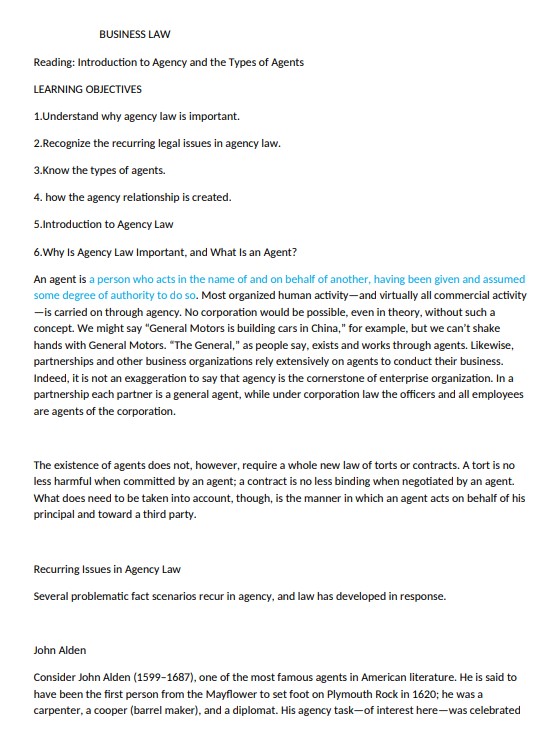Principle of Business Law
Summary:
The Principle of Business Law text introduces the topic of agency law in business and discusses its importance. It highlights the role of agents who act on behalf of others and explores the different types of agents, including general agents, special agents, subagents, agents with interest, and servants. The concept of an independent contractor is also explained, distinguishing it from an employee.
The text addresses recurring legal issues in agency law through an analogy involving John Alden from American literature. It discusses questions related to the extent of an agent’s authority, the liability of the principal for the agent’s actions, and potential conflicts of interest.
The creation of agency relationships is examined, with agencies being formed through agreements or by the operation of law. The importance of consideration, formalities (such as written contracts), and contractual capacity is emphasized when creating agency relationships.
The text concludes by providing key takeaways, including the significance of agency law in business and government, the types of agents, the distinction between employees and independent contractors, and the potential misuse of employee classification.
Excerpt:
Principle of Business Law
Reading: Introduction to Agency and the Types of Agents
LEARNING OBJECTIVES
1. Understand why agency law is important.
2. Recognize the recurring legal issues in agency law.
3. Know the types of agents.
4. How the agency relationship is created.
5. Introduction to Agency Law
6. Why Is Agency Law Important, and What Is an Agent?
An agent is a person who acts in the name of and on behalf of another, having been given and assumed some degree of authority to do so. Most organized human activity—and virtually all commercial activity—is done through an agency. No corporation would be possible, even in theory, without such a concept. We might say, “General Motors is building cars in China,” for example, but we can’t shake hands with General Motors. “The General,” as people say, exists and works through agents. Likewise, partnerships and other business organizations rely extensively on agents to conduct their business.


Reviews